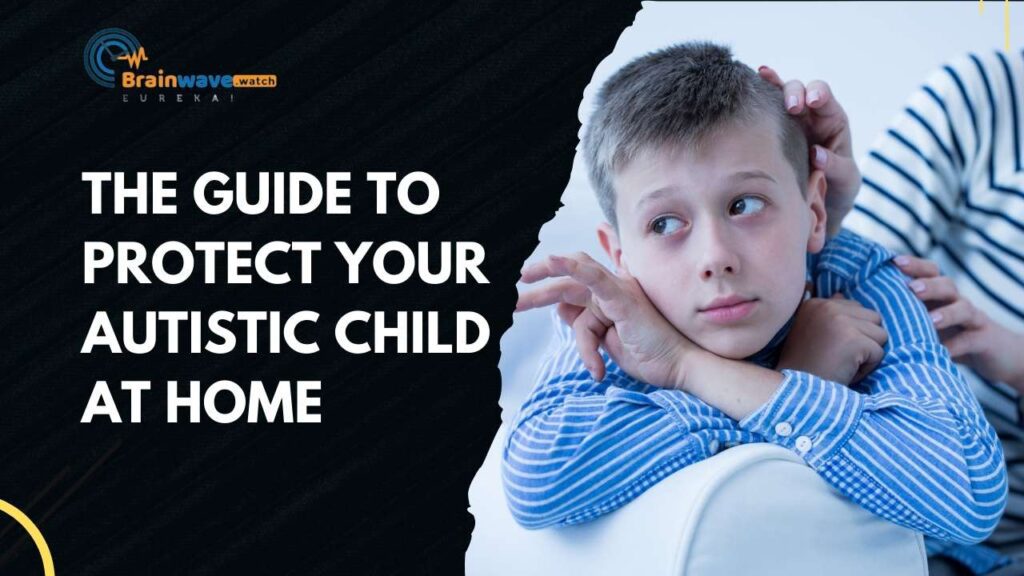Choosing an autism therapist isn’t just about ticking a box. It’s about finding someone who can make a real difference in your or your loved one’s life. The right therapist can unlock potential, boost confidence, and provide tools to navigate a world that often feels confusing and overwhelming.
Think about it – would you trust just anyone to rewire your house? Nope. So why settle for less when it comes to rewiring the brain? A skilled autism therapist can help:
- Improve communication skills
- Develop social abilities
- Manage challenging behaviors
- Boost independence
- Enhance the overall quality of life
But here’s the kicker – not all therapists are created equal. Some might be great for one person but not click with another. That’s why finding the right fit is crucial.
The Autism Therapy Landscape
Before we dive into the “how,” let’s talk about the “what.” Autism therapy isn’t one-size-fits-all. There’s a whole buffet of options out there:
- Applied Behavior Analysis (ABA)
- Speech and Language Therapy
- Occupational Therapy
- Social Skills Training
- Cognitive Behavioral Therapy (CBT)
- Developmental, Individual-difference, Relationship-based (DIR) Floortime
- Sensory Integration Therapy
Each of these approaches has its strengths and focuses on different aspects of autism. Some people might benefit from a combination of therapies, while others might thrive with just one. The key is finding what works best for you or your loved one.
Step 1: Know What You’re Looking For
Alright, now that we’ve got the lay of the land, let’s get down to business. How do you find an autism therapist? The first step is knowing what you’re after.
Identifying Your Specific Needs
Think about the challenges you or your loved one face. Are communication issues the biggest hurdle? Or is it sensory sensitivities that are causing the most stress? Maybe it’s social situations that feel like walking through a minefield.
Make a list of the top concerns you want to address. This will help you narrow down the type of therapy and therapist you’re looking for. It’s like going grocery shopping with a list – you’re less likely to end up with stuff you don’t need.
Setting Clear Goals
What do you want to achieve with therapy? Having clear goals can help you find a therapist who specializes in those areas. Some examples might be:
- Learning to communicate needs effectively
- Developing coping strategies for sensory overload
- Improving social skills for school or work
- Managing anxiety or depression related to autism
Remember, these goals can change over time, and that’s okay. The important thing is to have a starting point.
Considering Practical Factors
Let’s get real for a second – therapy isn’t just about what happens in the sessions. There are practical factors to consider too:
- Location: How far are you willing to travel?
- Schedule: Do you need evening or weekend appointments?
- Cost: What’s your budget? Do you need a therapist who accepts your insurance?
- Age: Are you looking for someone who specializes in children, teens, or adults?
These factors might seem less important than the therapy itself, but they can make a big difference in your ability to stick with the treatment long-term.
Step 2: Research Like a Boss
Now that you know what you’re looking for, it’s time to put on your detective hat and start digging.
Tapping into Professional Networks
One of the best ways to find an autism therapist is through professional referrals. Start with:
- Your primary care doctor or pediatrician
- School psychologists or counselors
- Local autism support groups
- Autism advocacy organizations
These folks are often plugged into the autism community and can point you toward reputable therapists in your area.
Harnessing the Power of the Internet
The internet can be a goldmine of information when you’re looking for an autism therapist. Some places to start your search:
- Psychology Today’s therapist directory
- The Autism Society’s local chapter websites
- Online autism forums and communities
- Social media groups focused on autism support
When searching online, use specific terms like “autism therapist [your city]” or “ABA therapy near me” to get more targeted results.
Seeking Recommendations from the Autism Community
There’s nothing quite like hearing from people who’ve been in your shoes. Reach out to other families dealing with autism. They can share their experiences, recommend therapists they’ve worked with, and even warn you about ones to avoid.
Local autism support groups, both in-person and online, can be fantastic resources. Don’t be shy about asking for recommendations – most people in these communities are more than happy to help.
Step 3: Vetting Your Options
Alright, you’ve got a list of potential therapists. Now it’s time to separate the wheat from the chaff.
Checking Credentials and Experience
First things first – make sure the therapists you’re considering are legit. Look for:
- Proper licensing and certification
- Specialized training in autism therapy
- Experience working with individuals similar to you or your loved one
Don’t be afraid to ask about their credentials and experience. A good therapist will be happy to share this information.
Reading Reviews and Testimonials
In today’s digital age, you can often find reviews for therapists online. While you should take these with a grain of salt (everyone’s experience is different), they can give you a general sense of what to expect.
Look for patterns in the reviews. Are there consistent praises or complaints? This can give you valuable insights into the therapist’s strengths and weaknesses.
Evaluating Treatment Approaches
Different therapists might use different approaches to autism therapy. Some questions to consider:
- What specific techniques do they use?
- How do they measure progress?
- How do they adapt their approach if something isn’t working?
Make sure their treatment philosophy aligns with your goals and values. If a therapist can’t clearly explain their approach, that’s a red flag.
Step 4: Making Contact
You’ve done your homework, and now it’s time to reach out to your top picks. This is your chance to get a feel for the therapist and see if they might be a good fit.
Preparing for Initial Consultations
Many therapists offer a brief initial consultation, either over the phone or in person. This is your opportunity to ask questions and get a sense of their personality and approach.
Prepare a list of questions beforehand. Some good ones to ask:
- What’s your experience with autism?
- How do you typically structure therapy sessions?
- What kind of progress can we expect to see?
- How do you involve families in the therapy process?
Don’t be afraid to ask tough questions. A good therapist will appreciate your thoroughness.
Assessing Communication Styles
Pay attention to how the therapist communicates during your initial contact. Are they clear and easy to understand? Do they listen to your concerns? Do they seem genuinely interested in helping?
Communication is key in therapy, so it’s important to find someone you feel comfortable talking to.
Discussing Practical Matters
Now’s the time to iron out those practical details we talked about earlier. Discuss:
- Availability and scheduling
- Fees and insurance coverage
- Cancellation policies
- Location and options for remote sessions
Get all this information upfront to avoid surprises down the road.
Step 5: Making the Decision
You’ve done the research, made the calls, and now it’s decision time. How do you know if you’ve found the right autism therapist?
Trusting Your Gut
Sometimes, the most important factor is how you feel about the therapist. Do you feel comfortable with them? Do you think they understand your needs? Trust your instincts – they’re often right.
If something feels off, even if you can’t put your finger on it, it’s okay to keep looking. The relationship between therapist and client is crucial, so it needs to feel right.
Considering a Trial Period
Many therapists are open to a trial period of a few sessions. This can give you a chance to see how things go in practice before making a long-term commitment.
During this trial, pay attention to:
- How comfortable you or your loved one feels with the therapist
- Whether the therapist’s approach seems effective
- If you’re seeing any early signs of progress
Remember, it’s okay if things aren’t perfect right away. Therapy takes time, but you should feel like you’re moving in the right direction.
Being Open to Adjustments
Finding the right autism therapist might take some trial and error. If your first choice doesn’t work out, that’s okay. It doesn’t mean therapy won’t work – it just means you haven’t found the right fit yet.
Be open to trying different therapists or approaches until you find what works best. It’s like finding the right pair of shoes – sometimes you have to try on a few pairs before you find the perfect fit.
Summary & Conclusion
Finding an autism therapist can feel like a daunting task, but breaking it down into steps makes it manageable. Remember:
- Know what you’re looking for
- Do your research
- Vet your options carefully
- Make contact and ask questions
- Trust your instincts when making a decision
The journey to finding the right autism therapist might not be easy, but it’s worth it. The right therapist can be a game-changer, opening up new possibilities and improving quality of life.
Don’t rush the process. Take your time, ask questions, and keep your specific needs in mind. And if you don’t find the right fit right away, keep looking. The right therapist is out there.
You’ve got this. With patience, persistence, and the right information, you can find an autism therapist who can make a real difference. And remember, you’re not alone in this journey. There’s a whole community out there ready to support you every step of the way.
Now go out there and find that awesome therapist who’s going to help unlock a world of potential. Your future self (or your loved one) will thank you for it.







